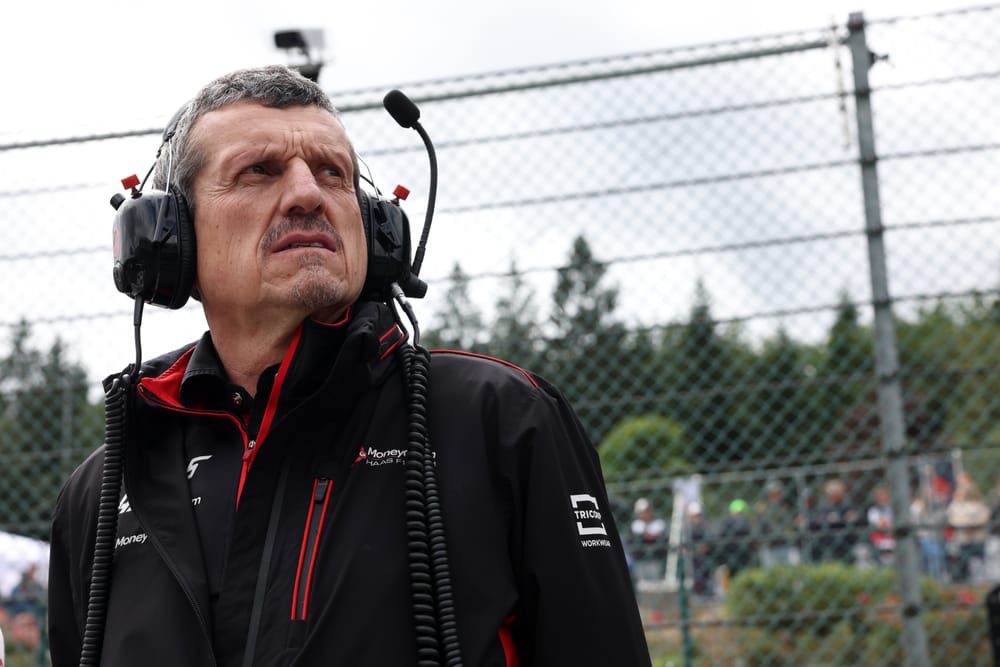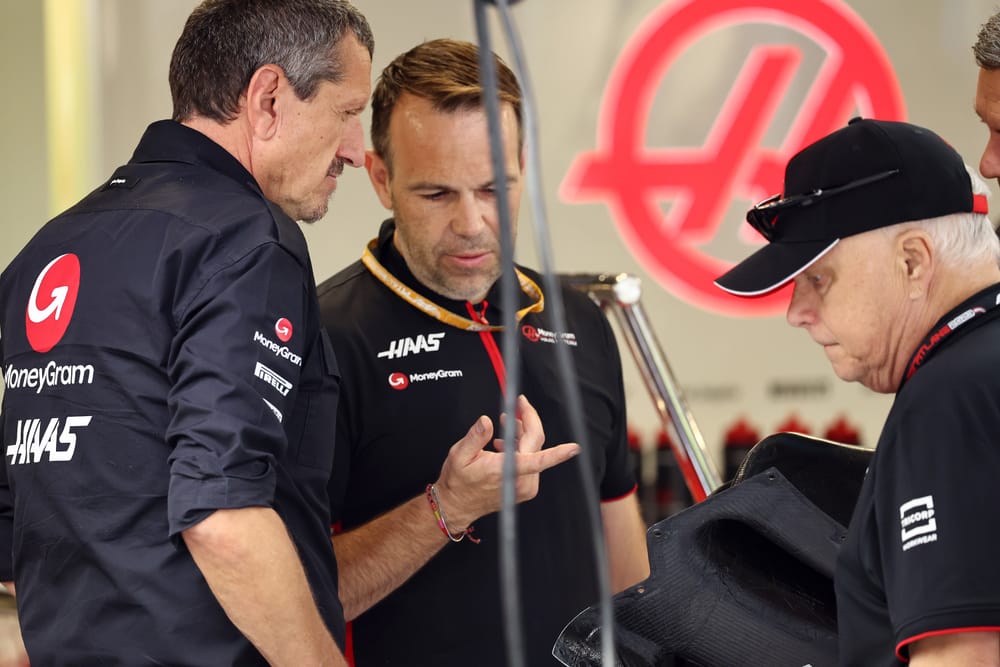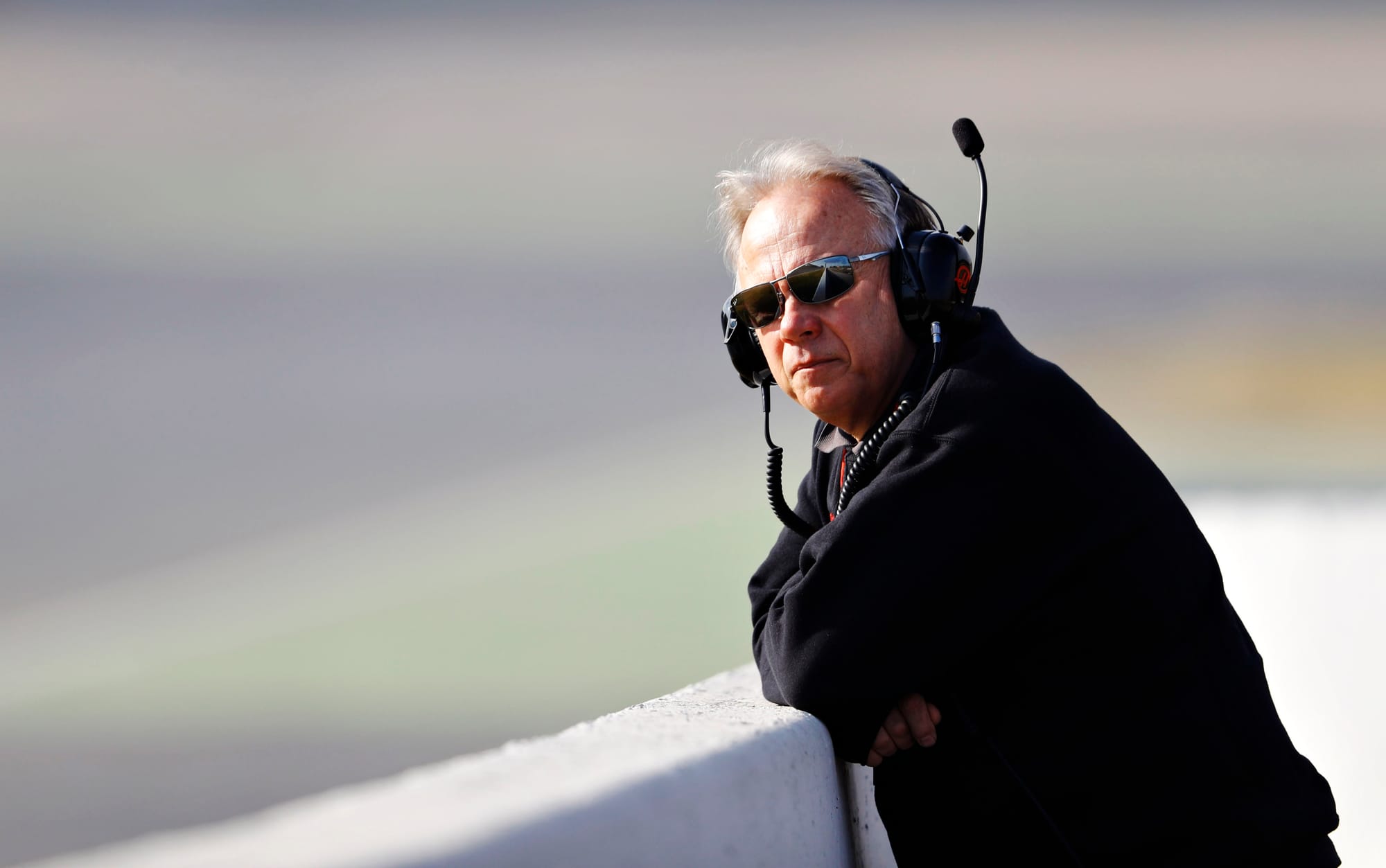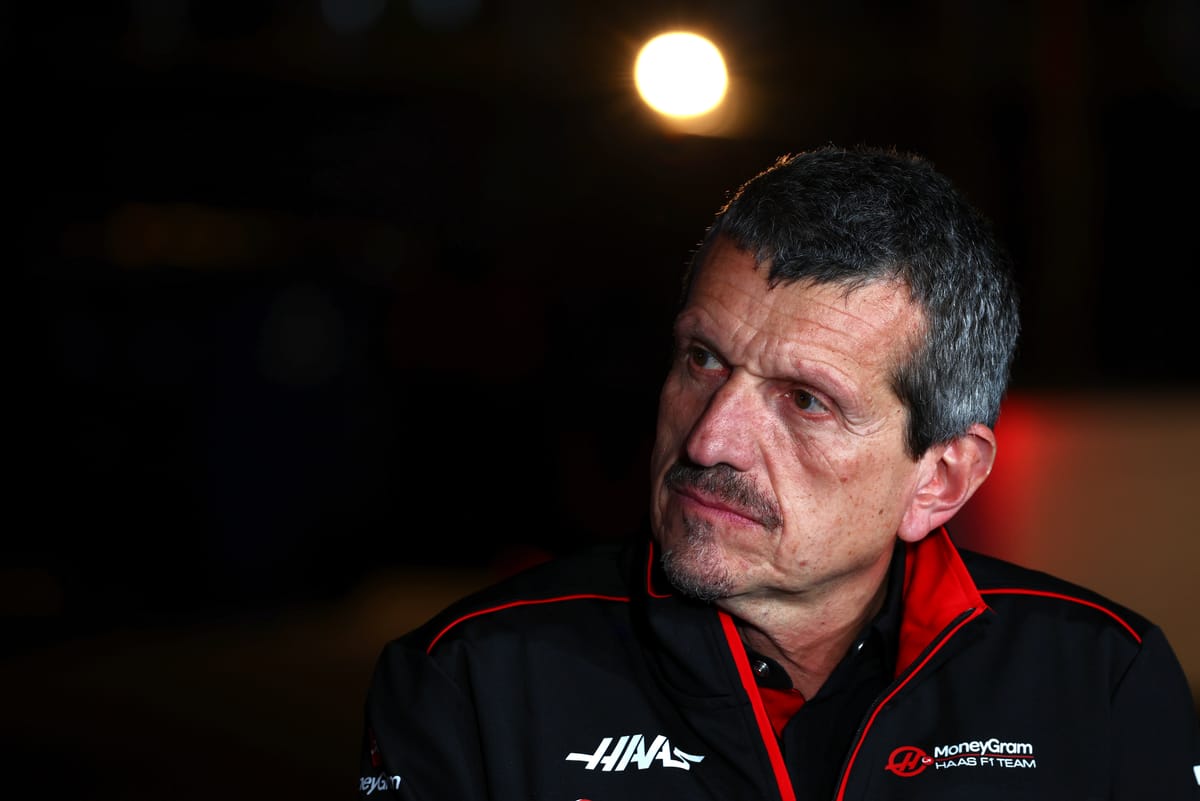Up Next

Given Guenther Steiner's reputation for brutal honesty and the obvious tension behind his exit from the Haas Formula 1 team, his first public appearance and comments on the matter were always going to be unmissable.
But while he was frank at times and happy to air his view, Steiner was always measured and made those points with more subtlety in a less expletive-laden way than might ordinarily be expected.
For anyone upset by his abrupt split from Haas - and there are plenty - this perhaps gave them the closure they feared they wouldn't get. It was certainly a chance to say goodbye that he'd not been afforded by Haas, so one he wanted to make the most of.
Steiner has, in the words of F1 commentator David Croft, interviewing him during his appearance at the Autosport International Show on Saturday, transcended F1. An accidental star of F1's Drive to Survive Netflix series, Steiner became one of F1's most charismatic voices in the age of instant quotability and social media soundbites.
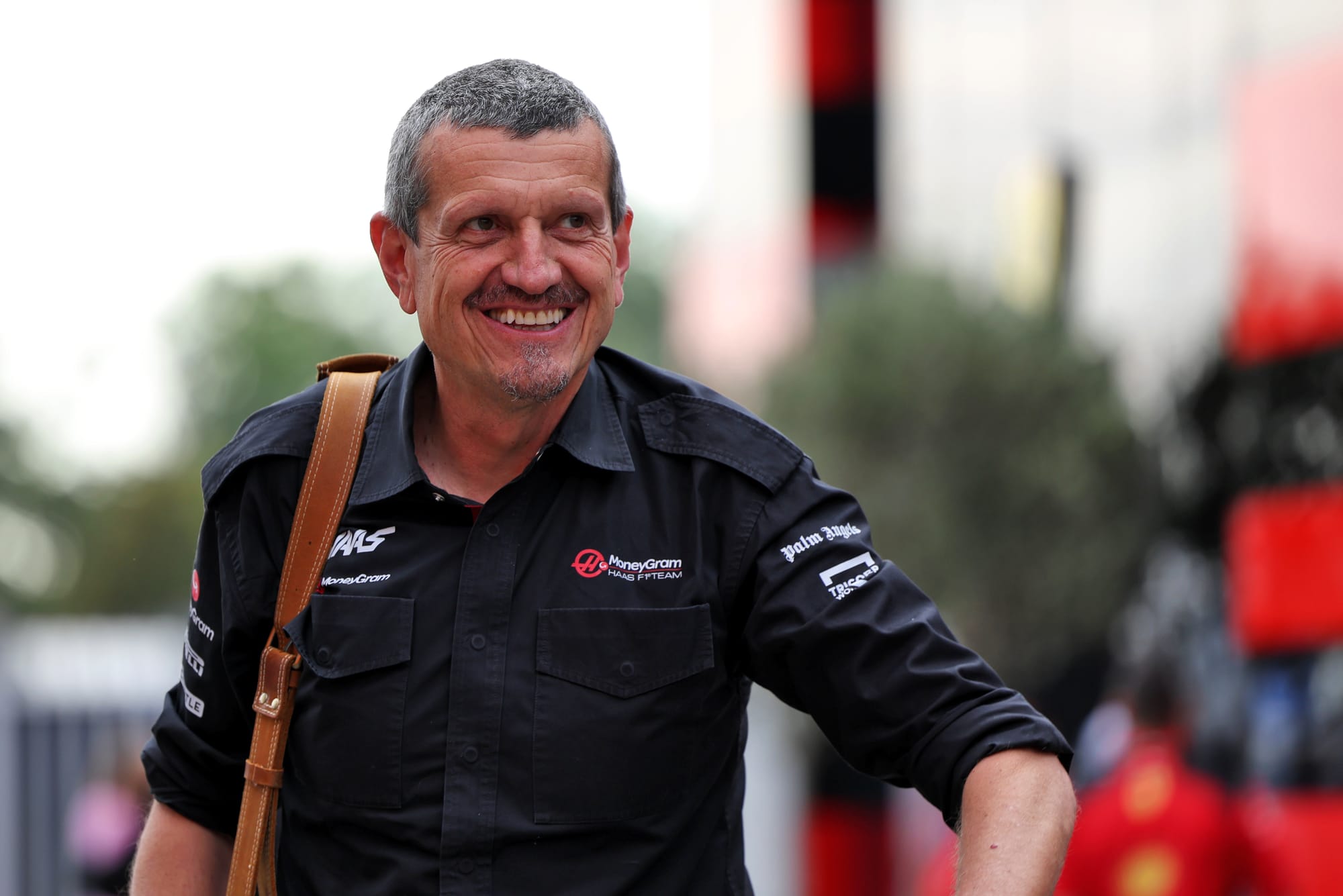
That's not to say he was universally popular; his direct approach meant, in his words, he didn't see "eye-to-eye" with everyone he worked with all the time and it's clear from reaction in some quarters that he was perceived to be part of what has been holding Haas back. The rise of 'brand Steiner' in response to his Netflix fame, and rumours of involvement in an F1-centric, The Office-style TV show that Steiner said were premature, won't have helped this.
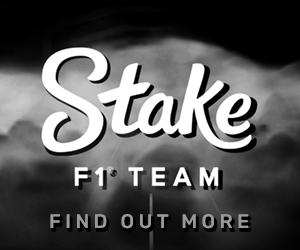
But behind that image there is a serious, professional operator. One who made F1's strangest team set-up viable, one who also ensured it survived that most gruelling of times, the COVID season of 2020.
Steiner's appearance, then, was a well-timed one that, two days after Gene Haas's first post-Steiner interview was published by Formula1.com, gave him the chance to tell his side of the story.
It was a magnanimous one too. Steiner skipped the first question, about 'when the call came' from Haas, to immediately take the opportunity to thank the employees he'd worked with during his 10-year spell at the helm of the team from inception. His exit, confirmed over the phone by Gene Haas (who informed Steiner his contract, up at the end of 2023, would not be renewed), didn't allow for that to happen in person.
He also declined the opportunity to take a swipe at the man he reported to, even amid Haas's declaration he'd been "embarrassed" by the team's performance in 2023, when it finished last in the constructors' championship.
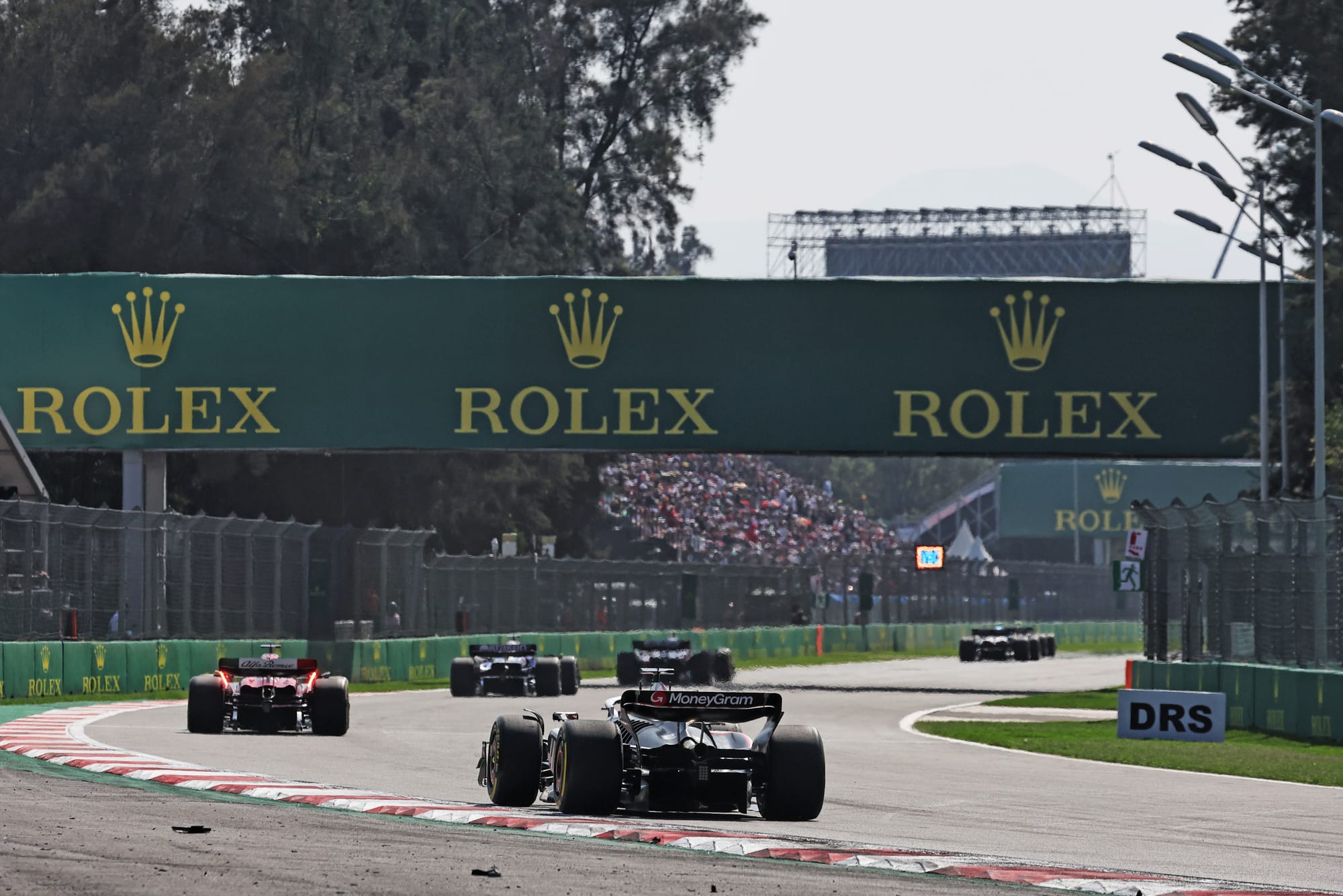
"If he feels like this, it's his feeling and he can say it," said Steiner. "Nobody's proud at the team to be 10th. We didn't have a good season in '23, we all know that, but in my opinion when you're down it's not [about] how you got down it's how you get up again."
But there was also an undertone to Steiner's most eloquent comments that only reinforces the consensus about where his and Gene Haas's views on the team's direction diverged to the point of no return.
This centres around what it will take for Haas to keep up in the ever-escalating arms race F1 currently represents. Haas himself is adamant more can be achieved with the current means; he used his media address earlier this week to say explicitly that the decision to jettison Steiner, who's been replaced by the team's engineering figurehead Ayao Komatsu, "came down to performance".
Steiner was widely understood to have been pushing for greater investment, lest the team - already a minnow in F1 terms - be cut off, unable to keep up with the pace of change. His answer on whether the team's current model is fit for purpose only reinforced that understanding.
"Since we had this model 10 years ago when we started, Formula 1 has changed a lot," he said. "You guys have seen how much Formula 1 changed after the COVID period, how much it grew, how much bigger it got, how much different it got; how we use the budget cap to get ideas on how to do things.
"If you look at all the other teams, they are all gearing up [to be bigger entities] - or they are not gearing up now, they started to gear up; some two years ago, some three years ago, some last year.
"Everybody is getting stronger, investing a lot in the future because Formula 1 I think is on a very good path with where it is going at the moment and that's what is needed to do to stay competitive. I don't know Gene Haas's plans for the future; as I said before, he didn't share them with me - he doesn't have to, by the way. I want to make that clear as well.
"On the other side, I see where other people are going and the model we started with at the beginning I think was a very good model, but maybe it's not time-relevant anymore. But who am I to say that?"
Steiner, of course, has his fingerprints all over that part-sharing, outsourcing model as one of the founding members of Haas F1. It was one spotted by him and largely shaped in his vision. But the very nature of the F1 beast is that it's ever-evolving, and its the one who's reticent to acknowledge that, to lift a phrase from The Race's Ben Anderson, who's most likely to be left shuffling deckchairs on the Titanic. Better, Steiner seemed to acknowledge, to accept times have changed, reflect on the relative victories and get with the programme than to cling on and get cut adrift.
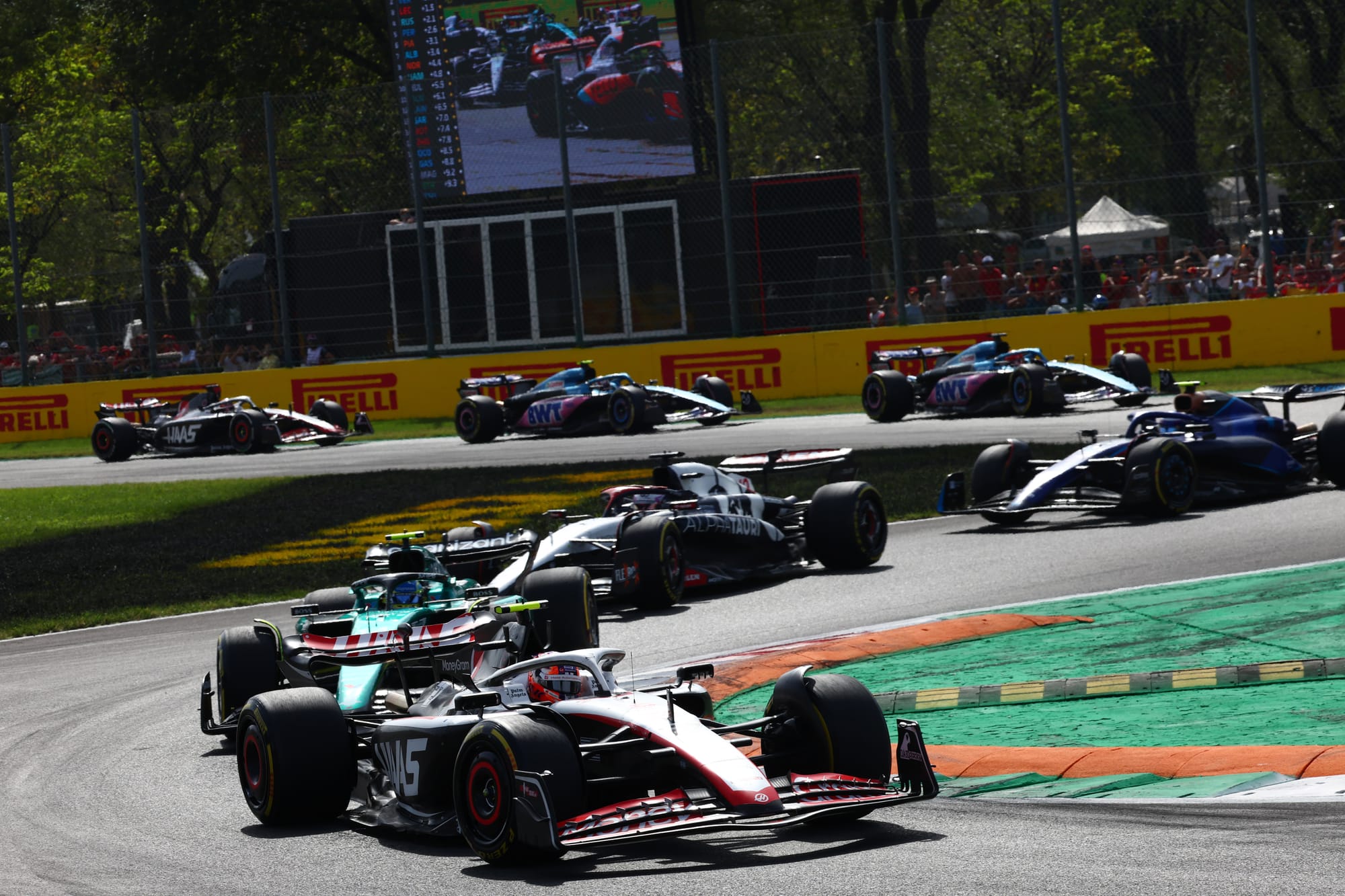
Haas has rejected the perception his team is spending "a lot less" than its rivals, suggesting that with its combined sponsorship income, prize money and his own financial input Haas was "usually within $10million" of F1's $135m cost cap.
But that offers two points of contention. The first is that Haas is due a $20m drop in prize money, having slipped from eighth to 10th in the constructors' championship from 2022 to 2023. The second, and more pertinent, is that this figure refers to the operating cost cap only. There's a separate one for capital expenditure and Haas was among four teams at the bottom of the order afforded an additional $20m allowance to invest in its infrastructure.
"You need to invest outside of the cost cap to get the best out of the operational cost cap," Steiner argued. "I wouldn't say it's very complex, but you need to think about really, the operational cost cap money, how can you get the most out of it to make the car go quicker?
"That is normally because you've invested in something to do that. That needs to be done, and I think a lot of people picked up on that years ago and started to invest in how to be efficient by spending money in capital investment and then getting [the] operational [expenditure] to be more efficient."
It's clear, no matter how composed he was on stage, where Steiner's gripes were. But it's not his responsibility now - he's free to "chill out a bit", as he puts it, after "10 tough years" steering F1's most unconventional team set-up.
Steiner's bound to have offers aplenty but insisted it needs to be the right one. "Just being in Formula 1 to just do a job, maybe it's not what I want to do," he said.
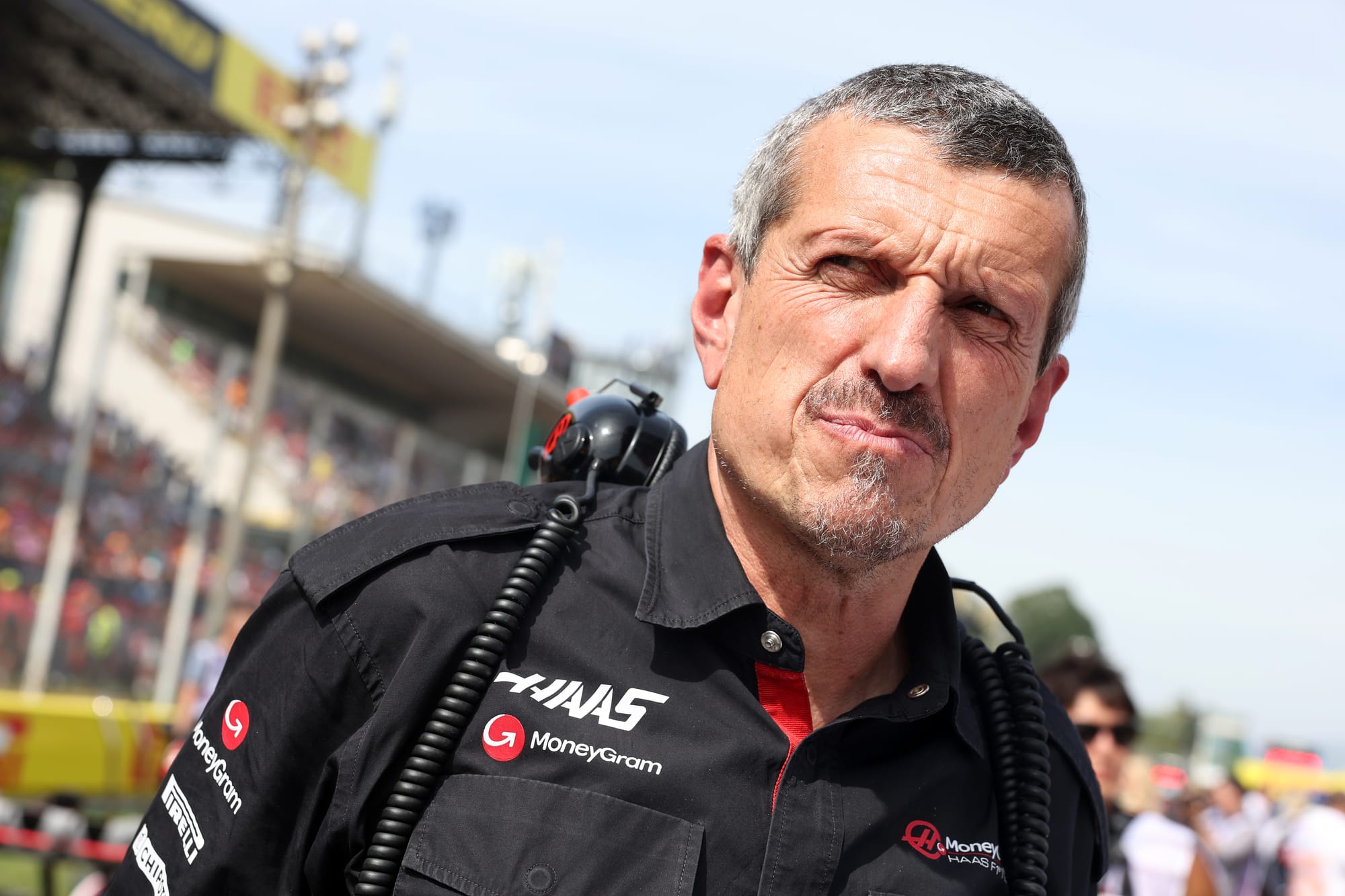
How could it be? His imprint is woven into Haas's identity, in the same way the team is such a big part of his story. Letting go of that is bound to be hard.
"I'm not here to give advice," he said, refusing to offer counsel to Haas in public and thereby avoiding the pitfalls of how that might be interpreted.
"I would say to the team just keep on working. There's a lot of good people there, just keep your heads down and keep on digging; you will get there."

